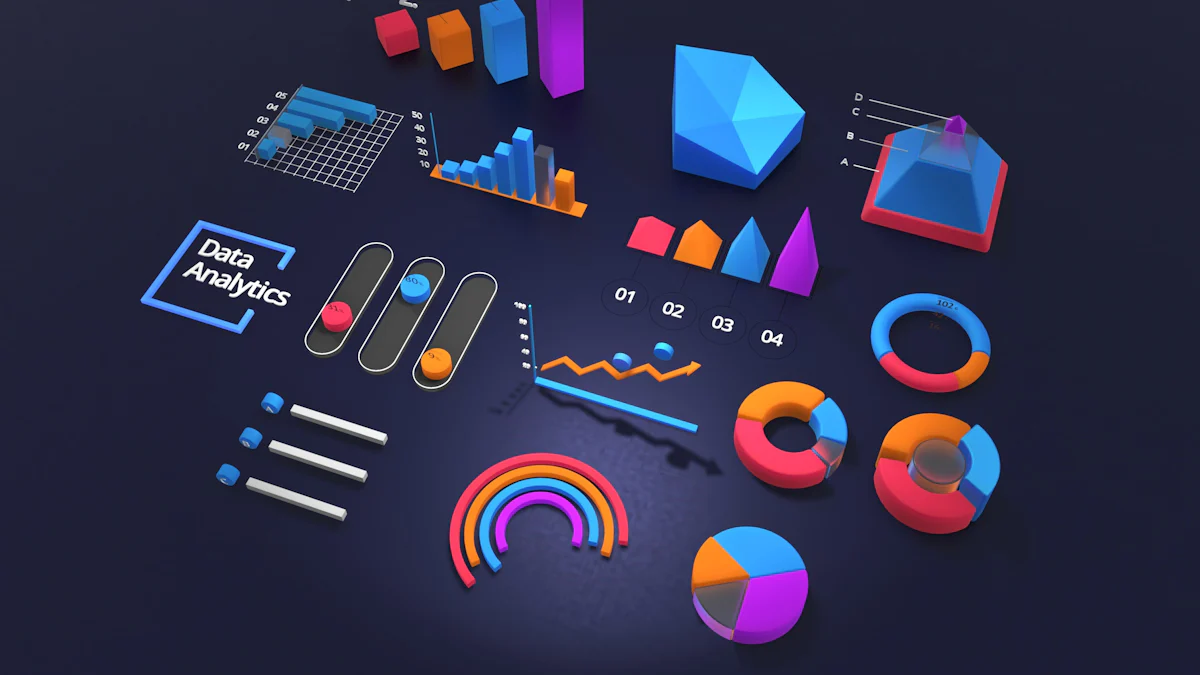What is AI SEO

AI SEO revolutionizes modern Search Engine Optimization practices by leveraging Artificial Intelligence to optimize web content effectively. Understanding the significance of AI in SEO is crucial for businesses aiming to enhance their online visibility and engagement. This blog delves into the core concepts of AI SEO, highlighting its role in data analysis, trend prediction, and content optimization strategies. By exploring the intersection of AI and SEO, readers can grasp the transformative power of AI technologies in shaping digital marketing landscapes.
Understanding AI SEO
What is AI?
Artificial Intelligence (AI) in the realm of Search Engine Optimization (SEO) represents a groundbreaking fusion of technology and digital marketing strategies. The inception of AI marked a pivotal shift in how websites are optimized for search engines, ushering in an era of enhanced user experience and refined content relevance.
Definition and basic concepts
The introduction of AI into SEO practices signifies a paradigm shift towards automated data analysis, trend prediction, and personalized content optimization. This innovative approach enables businesses to tailor their online presence according to user intent and search engine algorithms, thereby maximizing visibility and engagement.
Historical development of AI
Google's pioneering initiatives, such as the implementation of the PageRank algorithm and the introduction of RankBrain, have been instrumental in shaping the evolution of AI within SEO. These milestones underscore Google's commitment to enhancing search result accuracy and combating manipulative SEO techniques through advanced AI technologies.
What is SEO?
Search Engine Optimization (SEO) serves as the cornerstone of digital marketing strategies, encompassing a range of techniques aimed at improving website visibility and ranking on search engine results pages. The integration of AI into traditional SEO practices has redefined how businesses approach content creation, keyword optimization, and user engagement.
Definition and basic principles
At its core, SEO revolves around optimizing web content to align with search engine algorithms and user preferences. By adhering to established best practices such as keyword research, meta tag optimization, and quality link building, websites can enhance their online presence and attract organic traffic effectively.
Evolution of SEO practices
The evolution of SEO from manual keyword stuffing to sophisticated AI-driven analytics reflects a dynamic landscape shaped by technological advancements. As search engines prioritize user experience and relevant content delivery, businesses must adapt their SEO strategies to leverage AI tools for competitive advantage.
How AI integrates with SEO
The seamless integration of Artificial Intelligence (AI) with Search Engine Optimization (SEO) heralds a new era of data-driven decision-making and targeted content delivery. By harnessing AI technologies tailored for SEO purposes, businesses can streamline their optimization efforts while gaining valuable insights into user behavior trends.
AI technologies used in SEO
AI-powered algorithms like Google's RankBrain have revolutionized how search engines interpret context nuances and deliver personalized search results. These technologies enable websites to optimize their content structure, identify high-impact keywords, and enhance overall visibility on SERPs through data-driven strategies.
Examples of AI-driven SEO tools
Innovative tools such as QuickCreator's AI Content Marketing Tool exemplify the transformative impact of AI on traditional SEO practices. By automating content creation processes, recommending relevant writing topics based on trending events or keyword intents, these tools empower users to elevate their digital marketing strategies with precision and efficiency.
Benefits of AI SEO

Enhanced Data Analysis
AI SEO tools offer unparalleled capabilities in enhancing data analysis for optimizing web content. By leveraging artificial intelligence, businesses can delve deep into user behavior trends and keyword performance metrics to refine their SEO strategies effectively.
Improved keyword research
The integration of AI technologies in SEO facilitates improved keyword research by providing real-time insights into search trends and user intent. This enables marketers to identify high-impact keywords that resonate with their target audience, driving organic traffic and enhancing online visibility.
Better understanding of user intent
AI-powered SEO tools enable a better understanding of user intent by analyzing search queries and user interactions with web content. By deciphering the underlying motivations behind search queries, businesses can tailor their content to meet user expectations, resulting in higher engagement rates and improved conversion opportunities.
Automation of SEO Tasks
One of the key benefits of AI in SEO is the automation of various optimization tasks, streamlining processes and improving efficiency across content creation and technical aspects.
Automated content creation
AI-driven tools like QuickCreator's AI Content Marketing Tool empower users to automate the content creation process seamlessly. By generating high-quality, SEO-optimized content based on trending topics and keyword intents, businesses can save time while maintaining a consistent publishing schedule.
Streamlined technical SEO
AI technologies play a pivotal role in streamlining technical SEO tasks such as site audits, error detection, and meta tag optimizations. These automated processes ensure that websites adhere to best practices for search engine visibility, ultimately enhancing overall website performance and ranking potential.
Personalization and User Experience
AI SEO not only optimizes content for search engines but also focuses on personalization and enhancing user experience through tailored recommendations and improved engagement metrics.
Tailored content recommendations
By leveraging AI algorithms, businesses can deliver tailored content recommendations based on user preferences and browsing history. This personalized approach enhances user engagement by presenting relevant content that resonates with individual interests, ultimately fostering long-term customer relationships.
Improved user engagement metrics
Through AI-driven strategies, businesses can track and analyze user engagement metrics to gain valuable insights into audience behavior patterns. By understanding how users interact with web content, marketers can optimize their strategies for increased engagement, conversion rates, and overall brand loyalty.
Practical Applications of AI SEO

AI in Content Creation
In the realm of Search Engine Optimization (SEO), AI-powered tools have revolutionized content creation processes, offering advanced solutions for generating high-quality and SEO-optimized content efficiently. These tools leverage cutting-edge technologies such as Natural Language Processing (NLP) to analyze user intent and craft engaging narratives that resonate with target audiences.
Natural Language Processing (NLP)
AI-driven content creation tools equipped with NLP capabilities enable businesses to automate the writing process while maintaining a human touch in their content. By understanding language nuances and semantic structures, these tools produce compelling narratives that captivate readers and enhance overall engagement metrics.
Content optimization tools
Utilizing AI-powered content optimization tools, marketers can refine their existing content strategies by analyzing performance metrics and identifying areas for improvement. These tools offer valuable insights into keyword density, readability scores, and SEO best practices, empowering businesses to enhance their online visibility and attract organic traffic effectively.
AI in Technical SEO
When it comes to Technical Search Engine Optimization (SEO), AI-driven strategies play a pivotal role in streamlining website audits, error detection processes, and predictive analytics for optimizing search engine rankings. These innovative approaches leverage artificial intelligence to identify critical issues affecting website performance and implement data-driven solutions for sustainable growth.
Site audits and error detection
By automating site audits through AI algorithms, businesses can uncover hidden technical issues impacting their search visibility. These tools scan websites for broken links, missing meta tags, or slow loading speeds, providing actionable recommendations to improve overall site health and user experience.
Predictive analytics for SEO
Embracing predictive analytics, powered by artificial intelligence, enables businesses to forecast trends in user behavior, search engine algorithms, and competitive landscapes. By analyzing historical data patterns and emerging market trends, marketers can proactively adjust their SEO strategies to capitalize on new opportunities and stay ahead of the competition.
AI in Link Building
Link building remains a cornerstone of effective SEO strategies, and leveraging AI technologies can significantly enhance the process of identifying high-quality link opportunities and automating outreach campaigns. These advancements streamline link acquisition efforts while ensuring ethical practices that align with search engine guidelines.
Identifying high-quality link opportunities
AI-powered link building tools analyze backlink profiles, domain authority metrics, and relevancy signals to identify high-quality link opportunities for websites. By prioritizing authoritative sources with relevant content themes, businesses can strengthen their online presence and credibility within their niche markets.
Automating outreach processes
Automated outreach processes driven by artificial intelligence simplify communication workflows between brands and potential linking partners. These tools personalize outreach messages based on recipient profiles, track response rates efficiently, and optimize follow-up strategies for maximizing link acquisition success rates.
Future Implications of AI SEO
As the landscape of Search Engine Optimization (SEO) continues to evolve, the future implications of integrating Artificial Intelligence (AI) technologies are becoming increasingly significant. Embracing emerging AI advancements and addressing ethical considerations are paramount for businesses seeking to stay ahead in the digital marketing realm.
Emerging AI Technologies
Machine learning advancements
The continuous evolution of machine learning in SEO signifies a shift towards more personalized and dynamic content strategies. By leveraging machine learning algorithms, businesses can analyze user behavior patterns, predict search trends, and optimize content delivery for enhanced user engagement and conversion rates.
AI-driven voice search optimization
The rise of AI-driven voice search optimization presents new opportunities for businesses to tailor their content strategies towards voice-enabled devices. By optimizing web content for voice search queries, brands can enhance their visibility on virtual assistants like Siri, Alexa, and Google Assistant, catering to the growing trend of voice-based interactions in the digital space.
Ethical Considerations
Data privacy concerns
Amidst the proliferation of AI technologies in SEO, data privacy concerns have come to the forefront as users become more conscious of their online footprint. It is crucial for businesses to prioritize data security measures, transparency in data collection practices, and compliance with regulatory frameworks to build trust with their audience and safeguard sensitive information.
Ensuring fair AI practices
Maintaining fair AI practices involves striking a balance between automation and human oversight in SEO strategies. While AI tools offer efficiency and precision in data analysis and content optimization, it is essential for businesses to uphold ethical standards, avoid algorithmic biases, and ensure that AI complements rather than replaces human creativity in crafting compelling narratives.
Preparing for the Future
Staying updated with AI trends
Staying abreast of AI trends is essential for businesses looking to harness the full potential of AI technologies in SEO. By monitoring industry developments, attending conferences, and engaging with thought leaders in the field of AI marketing, brands can adapt their strategies proactively to leverage cutting-edge tools and techniques for sustainable growth.
Adapting SEO strategies for AI advancements
Adapting SEO strategies to align with AI advancements requires a strategic approach that combines technical expertise with creative insights. By integrating AI-powered tools like QuickCreator's AI Content Marketing Tool into their workflow, businesses can streamline content creation processes, optimize keyword research efforts, and enhance user experiences through data-driven decision-making.
To summarize, the blog has explored the fundamental concepts of AI SEO, emphasizing its pivotal role in transforming digital marketing strategies. The integration of AI technologies in SEO practices offers unparalleled benefits, from enhanced data analysis to streamlined content creation processes. Businesses leveraging AI-powered tools witness significant improvements in search engine rankings and user engagement metrics.
The growing importance of AI in SEO is evident through its ability to predict trends, personalize content recommendations, and optimize technical aspects seamlessly. By embracing emerging AI advancements and ethical considerations, businesses can stay ahead in the competitive digital landscape while ensuring fair AI practices that prioritize user privacy and trust.
Looking towards the future of AI SEO, it is essential for marketers to adapt their strategies proactively by staying updated with AI trends and integrating innovative tools like QuickCreator's AI Content Marketing Tool. This call to action encourages readers to explore the vast potential of AI SEO tools and strategies in revolutionizing their content marketing approach for sustainable growth.
See Also
Decoding LSI Keywords: Unlocking SEO Triumph
SEO's Evolution in 2024: Innovations, AI, and Content Tactics
SEO's Tomorrow in the Age of Google Search Innovation
Demystifying SEO: An In-Depth Look at Search Engine Optimization
Maximizing AI Essay Checkers for Authenticity and Plagiarism Prevention

